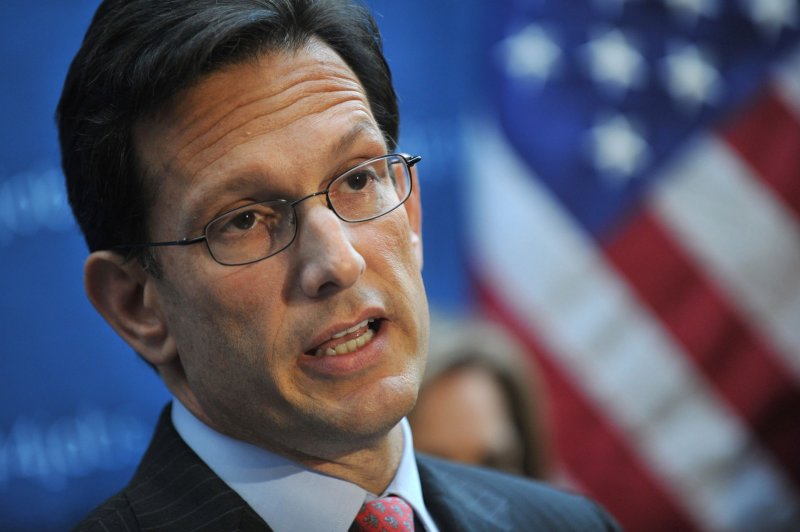House Majority Leader Eric Cantor (R-VA) attends a press conference following a Republican Conference meeting on Capitol Hill in Washington, D.C., January 8, 2014. UPI/Kevin Dietsch |
License Photo
WASHINGTON, June 12 (UPI) -- The ideological divide between the two major U.S. political parties has grown in the past 20 years, a new report based on a large poll says.
The Pew Research Center for the People and the Press found that both Democrats and Republicans are more than twice as likely as they were 20 years ago to hold consistent ideological views and to perceive those they disagree with as dangerous. The report also said the politically engaged are more likely than they were in 1994 to live in "ideological silos."
"People with down-the-line ideological positions -- especially conservatives -- are more likely than others to say that most of their close friends share their political views," the report said. "Liberals and conservatives disagree over where they want to live, the kind of people they want to live around and even whom they would welcome into their families."
While the majority of the public is somewhere in the mushy middle, those on the edge are more likely to be actively involved in politics, Pew said. This week, Eric Cantor, R-Va., a hard-line conservative by most definitions, became the first House majority leader to lose his seat in a primary election.
Pew interviewed 10,013 adults by telephone between January and March.
The poll found that 38 percent of politically active Democrats describe themselves as consistent liberals, up from 8 percent 20 years ago. Among Republicans, 23 percent said they were consistent conservatives in 1994 -- the year the party won control of the House of Representatives for the first time in decades -- a share that dipped to 10 percent in 2004 and is now at 33 percent.
As a result, 92 percent of Republicans are to the right of the "median Democrat," while 94 percent of Democrats are in the reverse position. In 1994, the figures were 64 percent for Republicans and 70 percent for Democrats.
















